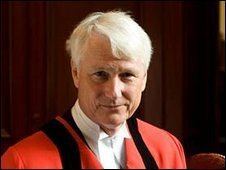


The Tax Office has been given a legal rap on the knuckles over the way it handled a request for tax information from Sweden.
In June 2020, the Swedish tax authorities contacted Jersey’s Tax Office to ask for information about the tax affairs of a Swedish national called Peder Eric Prahl, who is the founder and CEO of investment firm Triton, which has an office on the Esplanade.
Sweden had begun an investigation to determine if Mr Prahl was tax resident in the country from 2015 to 2019. Under an international convention Jersey signed in 2014, the island was obliged to assist countries making a request for details.
Mr Prahl said that, if the Swedish tax authorities were to conclude that he was tax resident in Sweden during that period, he would cooperate and comply with any information request that was relevant to assessing his taxable income.
However, he argued that he was not resident in Sweden for those years, therefore whatever he owned or earned in Jersey was irrelevant.
Jersey issued notices asking for information but Mr Prahl, through his lawyers, argued that the Swedish tax authorities had given him a verbal undertaking – later confirmed in a written ‘draft decision’ – that it was reconsidering the question of tax residence in light of Mr Prahl submitting information to them.

Pictured: Commissioner Sir Michael Birt.
The Jersey Tax Office persisted, and Mr Prahl and Triton applied for a judicial review of the issued notices, and the Royal Court recently gave its judgment, striking them out.
Commissioner Sir Michael Birt was particularly critical of the Jersey Tax Office for writing to their counterparts in Sweden, saying that Mr Prahl had told them that the Swedish tax authorities had proposed a settlement of the investigation.
In fact, there was no evidence in any correspondence between Mr Prahl’s lawyers and the Swedish tax authorities about a settlement, nor had the former ever referred to it.
Sir Michael concluded: “The [Jersey Tax Office] had clear evidence (in the form of the letter from the Swedish tax authorities themselves) that the Swedish tax authorities were reconsidering the question of tax residence in the light of the response of [Mr Prahl] to the draft decision and that they would do so before a decision was made.
“In these circumstances, I have no hesitation in concluding that it was the duty of the [Jersey Tax Office] to revert to the Swedish tax authorities in order to establish what the position was.
“Were the Swedish tax authorities looking again at the issue of tax residence as the letter suggested? If so, when would they reach a decision? How was the information sought foreseeably relevant if residence was now being reconsidered?
“Faced with clear evidence that the Swedish tax authorities were reconsidering the issue of tax residence, I do not see how the [Jersey Tax Office] could reasonably remain of the opinion that the tax information sought was foreseeably relevant.”
He added: “In short, the [Jersey Tax Office] completely failed to make the enquiry which it should have as set out above.
“Accordingly, notwithstanding exchanges [provided by the Tax Office in an affidavit], the [Jersey Tax Office] was in no better position than it was before those exchanges in relation to the key issue of whether the Swedish tax authorities was reconsidering [Mr Prahl’s] tax residence and, therefore, whether the tax information sought was still foreseeably relevant.
“The [Jersey Tax Office] never asked the right question and therefore it never got a focused answer to that question in response.”
Sir Michael ordered that the notices requesting information be quashed “on the ground of irrationality”.
He also called for the Jersey Tax Office to better explain its position in future.
“If the [Jersey Tax Office] does not explain its decision fully and clearly, there is a risk that decisions will go against it, which would not be in the interests of Jersey’s desire to assist in the fight against tax evasion,” he said.
Sir Michael stressed that his judgment contained no criticism of the Swedish tax authorities.
“The courts of Jersey fully appreciate the importance which Jersey places on cooperation in combatting tax evasion, but any notices issued pursuant to the 2008 and 2014 Regulations [the Jersey laws underpinning its information exchange commitments] must comply with the law and responsibility for that rests with the [Jersey Tax Office[.
“Upon receipt of a request, it must make any enquiries of the requesting authority which are necessary to satisfy itself on reasonable grounds that the tax information sought is foreseeably relevant.”
However, he added: “Although the notices have been quashed, there is nothing to prevent the Swedish tax authorities from making a new request in due course and the [Jersey Tax Office] from issuing new notices pursuant to such a request provided that the [Jersey Tax Office] is satisfied on reasonable grounds that the information sought in such a request is foreseeably relevant which, on the facts of this case, requires it to be satisfied on reasonable grounds that the [Mr Prahl] is tax resident in Sweden.”
Comments
Comments on this story express the views of the commentator only, not Bailiwick Publishing. We are unable to guarantee the accuracy of any of those comments.